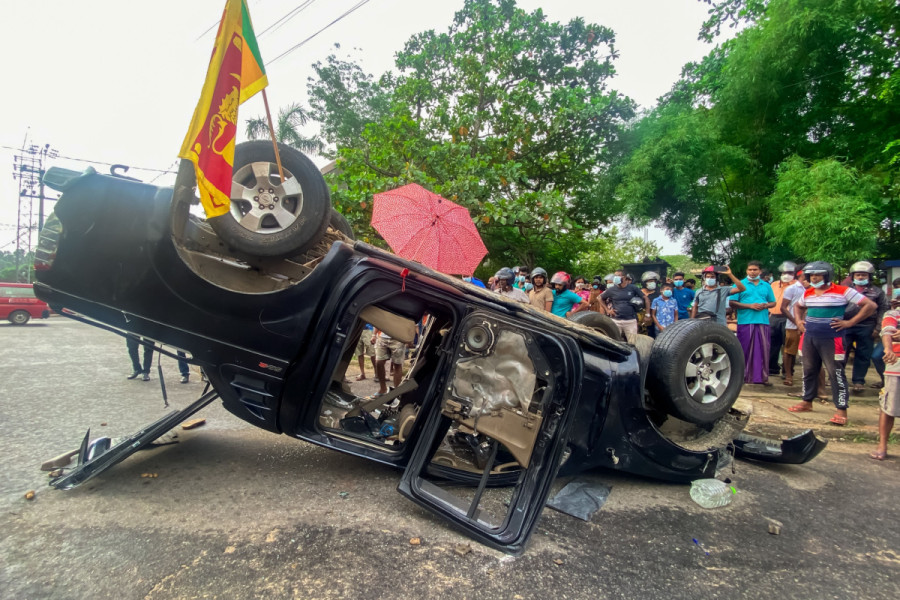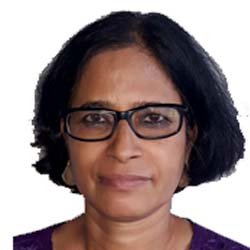Columns
Electioneering in South Asia
Economic difficulties are going to play a role in the electoral political narratives in the region.
Smruti S Pattanaik
The slowing economy in South Asia has emerged as a major challenge for the region's incumbent governments, some of whom will face elections in the next year or two. The Covid-hit economy that was on the way to recovery received another wallop from the Russia-Ukraine war. Added to this is the depreciation of local currencies against the United States dollar. The rise in oil prices has a direct impact on food prices, but the region's opposition political parties have failed to implicate the ruling regime for the economic misery.
In India, the second fastest growing economy among the G20 countries, the performance of the manufacturing and service sectors has improved, but the last three-month average shows it has slowed down. In terms of the gross domestic product (GDP) growth rate, India is the third in the region with a 7 percent growth in 2022, behind the Maldives (8.2 percent) and Bangladesh (7.2 percent). Sri Lanka is at the bottom with minus 8.8 percent growth. A rise in commodity prices, slowdown in global demand and inflation will pull down growth. Like other countries in the region, India has also announced that it will cut down on non-essential imports. The government’s decision to cushion the impact of rising oil prices by not increasing the price of petrol domestically has to some extent ameliorated economic hardship. In India, the dollar is at a 20-year high, putting pressure on imports. According to the Reserve Bank of India's September 2022 Monetary Policy Report, inflation remains at unacceptably high levels.
Fastest growing economy
Bangladesh, the fastest growing economy in the South Asia region, is registering a growth in inflation. The taka has depreciated against the dollar substantially. Two of its main exports—readymade garment and labour—have reduced the impact on Bangladesh’s foreign exchange reserve. According to Bangladesh Bank, inflation was 8.5 percent as per the Consumer Price Index compared to 5.98 in November last year. The foreign exchange reserve which was $44.8 billion last year fell to $33.7 billion in November 2022. The drop led the government to place restrictions on the opening of letters of credit and importing luxury goods and cancel non-essential travel for its officials.
Its decision to apply for a $4.5 billion International Monetary Fund (IMF) loan has been criticised. The opposition political parties have criticised the government’s economic policies, but it has pointed to large-scale corruption as being responsible for the country’s economic woes. As the country is scheduled to go to the polls in January 2024, these issues will be highlighted by the opposition. What will shape the political discourse in Bangladesh is the Digital Security Act that has constricted freedom of expression, corruption and disappearances. The economic difficulties of the common people will add to the general discontent, but it will not make a substantial dent.
Economic distress in Pakistan was largely responsible for the exit of the Imran Khan government. Discontent heightened as prices of essential commodities rose with the worsening of the external debt situation. In 2019, Pakistan negotiated a $6 billion bailout package. However, it refused to implement IMF mandated reforms which included the removal of subsidies. This resulted in the bank's withholding the next tranche after the initial $1.1 billion. The falling Pakistani rupee, which hit 188 per dollar, coupled with import dependency, did not help the desperate government to seek a bailout.
Foreign debt stands at $32 billion. Consumer Price Index inflation was more than 26 percent, and the current account deficit is around 3 percent of GDP. Interestingly, Imran Khan has turned around the debate on his exit from power and accuses the army of politically engineering it. Investment has dwindled and the new government led by Prime Minister Shahbaz Sharif is in no position to turn Pakistan’s economy around with rising global fuel prices adding to double-digit food inflation, which stands at 17.7 in the rural areas where the majority of the people live.
Sri Lanka saw the people rising against the government in April this year as its economic situation deteriorated. It defaulted on its $51 billion bilateral foreign debt and devalued its currency, impacting imports. It was short of fuel, medicine and food. Food prices swelled by 49 percent. The government's populist measure of providing subsidies while banning chemical fertiliser impacted food security. The government declared bankruptcy as it did not have enough foreign currency to pay for imports. People took to the streets and forced one of the most powerful governments of Sri Lanka to resign and flee the country. The new government has inherited an empty treasury, and restructuring foreign debt remains the top priority. It also needs to take anti-people measures like cutting subsidies if it wants to revive the economy. According to the World Bank, Sri Lanka’s “year-on-year inflation reached an unprecedented 64.3 percent in August 2022, due largely to high food inflation of 93.7 percent”.
Socio-political issues
Nepal is the only country that has witnessed elections. It faced inflation and shrinking foreign currency reserves due to increases in fuel prices and a reduction in the flow of remittances. Economic issues did not dominate the election debate. Both of Nepal's major parties, the Nepali Congress and the Communist Party of Nepal (Unified Marxist-Leninist), emphasised job creation if they were voted to power. According to Nepal Rastra Bank, year-on-year consumer price inflation was 7.87 percent in fiscal 2021-22. The people who voted for the ruling party show how the voters perceive the economic situation while exercising their political choice.
It is important to note that both Sri Lanka and Pakistan’s economic situations resulted in the ouster of their governments. Sri Lanka is struggling to revive its economy, but Pakistan’s economic turmoil has taken a political turn. In South Asia, the economy has hardly determined the future of regimes, Sri Lanka being the only exception. While governments may focus on the economic wellbeing of the masses, it is likely that the election narrative will revolve around socio-political issues rather than purely economic issues.




 8.79°C Kathmandu
8.79°C Kathmandu















